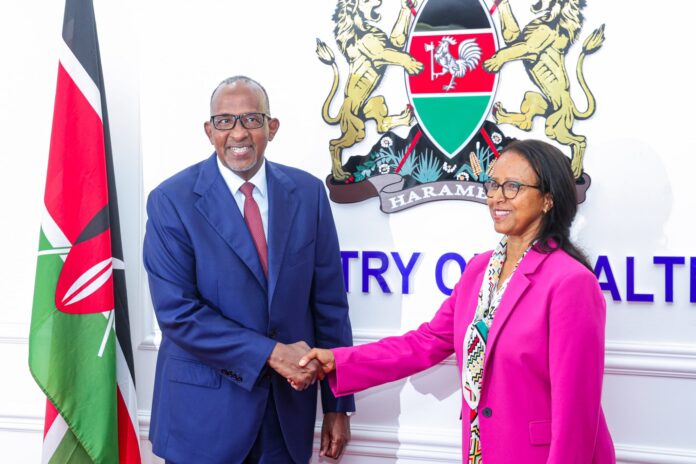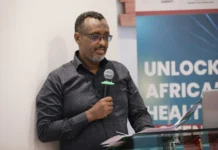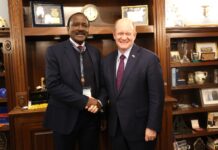Written by Kelly Were
In a renewed show of commitment to combating HIV/AIDS, Health Cabinet Secretary Hon. Aden Duale today hosted a high-level delegation from UNAIDS, led by Country Director Ms. Medhin Tsehaiu, to explore new avenues for enhancing Kenya’s HIV response.
The meeting, held at Afya House, focused on scaling up progress through the UNAIDS “H6 Partnership”—a joint initiative of UNFPA, UNICEF, UN Women, WHO, UNAIDS, and the World Bank that aims to provide coordinated technical and financial support to national health systems.
Advancing Toward a Resilient HIV-Free Future
Hon. Duale acknowledged the instrumental role UNAIDS has played in supporting Kenya’s public health priorities over the years and emphasized the need for deeper collaboration as the country implements the HIV Sustainability and Transition Plan.
“Our focus is to build a resilient HIV response beyond 2030,” CS Duale said. “This includes ending mother-to-child transmission, integrating digital health tools, and aligning with the Social Health Authority to achieve Universal Health Coverage (UHC).”
The Health CS also reaffirmed the Ministry’s commitment to integrity, accountability, and transparency in all health programs, stressing that sustainable gains in the HIV response depend on effective governance.
UNAIDS Reaffirms Support
Ms. Tsehaiu welcomed Kenya’s proactive approach and reiterated UNAIDS’ commitment to supporting national efforts. She highlighted the agency’s coordinating role across 11 UN organizations and its alignment with the UN Sustainable Development Cooperation Framework, which guides global partnerships for development.
“Kenya’s leadership is vital in driving Eastern and Southern Africa’s HIV strategy forward,” said Tsehaiu. “Through joint action, we can secure a future where HIV is no longer a public health threat.”
Key Officials in Attendance
Also present were Dr. Patrick Amoth, Director General for Health, and Dr. Andrew Mulwa, Head of the National AIDS & STI Control Programme (NASCOP), who both underscored the significance of strengthening health systems, community engagement, and digital innovations in tackling the epidemic.



















